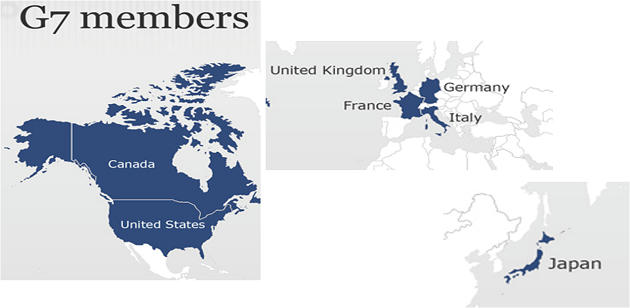Table of Contents
Boris Johnson visit to India
- Johnson said: “As a key player in the Indo-Pacific region, India is an increasingly indispensable partner for the United Kingdom as we work to boost jobs and growth, confront shared threats to our security and protect our planet.”
- Downing Street added: “The visit will be the prime minister’s first major bilateral visit since taking office, and the first since the UK’s departure from the EU, and underlines his commitment to step up the UK’s engagement with the Indo-Pacific region.”
What has happened?
- Boris Johnson is to visit India next month as part of a plan to transform the G7 group of leading industrialised nations,
- Into a broader grouping of 10 leading democracies capable of challenging China and other authoritarian states.
- The UK prime minister has written to India, Australia and South Korea asking them to attend the UK-hosted G7 summit next summer, Downing Street revealed.
G7- Group of seven
- G7 is a collective of seven of the world’s most industrialized and developed economies.
- G7 was formed initially to discuss economic and political concerns prompted by the 1973 oil crisis.
- Its 1st summit was held at Rambouillet, France, in 1975.

- Leading export countries
- Largest gold reserves
- Largest nuclear energy producers
- Top contributors to the UN budget

- Johnson has invited the Indian prime minister, Narendra Modi,
- “To attend the UK’s G7 summit as one of three guest nations alongside South Korea and Australia –
- Delivering the prime minister’s ambition to work with a group of like-minded democracies to advance shared interests and tackle common challenges”.
So what is D10?
- The United Kingdom is pursuing an alliance of ten democracies in order to create an alternative pool of 5G equipment and technologies to avoid reliance on China and especially its telecom giant Huawei.
- Dubbed as the D10 alliance, it would include India, Australia, and South Korea, in addition to G7 countries

- But now it seems to be going beyond 5G.
- The idea of a “D10” grouping ideologically committed to combating the march of authoritarian states chimes with Joe Biden’s plan to hold a summit of democracies.
- It is not clear if the idea of a D10 summit is seen as additional to the Biden summit or a substitute for the proposal.
china
- China will view any attempt to set up an alliance of democracies with suspicion,
- It has been warily watching a succession of European countries taking a greater interest in the Indo-Pacific, including Germany and France.

- Biden’s allies have said an alliance or summit of democracies is necessary to stop China from picking off democratic states with strategic investments and
- Trying to mould the rules-based order in its image of state subsidies and authoritarian technologies.
- The US president-elect has also said Russia is sowing disorder around the free world with disinformation campaigns, election meddling and corrupt money flows.
- A D10 already exists informally following work by the US thinktank the Scowcroft Centre,
- But this will be the first time the group will have met at at the highest level.
- Critics of the D10 says,
- Many of the issues about which we really care, we have to involve China.
- And if you want to be a realist and if you are serious about challenging China,
- It is probably not going to work if you try to draw the dividing lines in the world between democracies and non-democracies.
Vaccine angle
- The UK regards India as the “pharmacy of the world” since India supplies more than 50% of the world’s vaccines,
- With more than 1bn doses of the UK’s Oxford/AstraZeneca vaccine being manufactured at India’s Serum Institute in Pune.
Q) Which of the following statements regarding G7 is correct?
- Canada was not the founding member of G7.
- All G7 countries have a per capita GNI of more than $40,000.
- G7 countries collectively comprise more than 50% of the global GDP.
- 1 & 2 only
- 2 only
- 2 & 3 only
- All of the above
Latest Burning Issues | Free PDF























 WhatsApp
WhatsApp